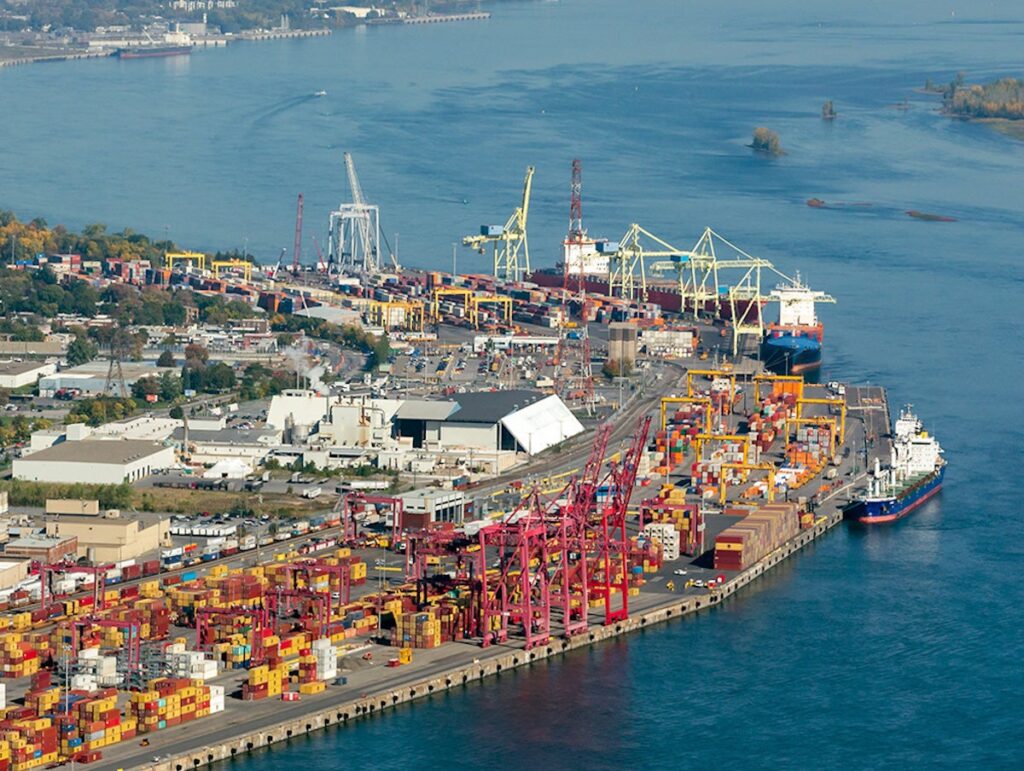Unionized dockworkers at the Port of Montreal recently opted to escalate their strike actions, following a one-day strike held earlier in the week. This decision by the 1,200 longshore employees is set to target two Tremont terminals and is scheduled to commence at 11 a.m. local time on Thursday. The backdrop to this partial, unlimited strike is a series of labor disputes that have intensified following an earlier three-day overtime strike at the port, which ranks as Canada’s second-busiest. The employees are represented by the Quebec Federation of Workers (FTQ), which is associated with the Canadian Union of Public Employees, and they are expressing grievances related to critical issues such as compensation, work-life balance, and scheduling.
The union’s members are mobilizing these strike actions amidst a tense labor negotiation climate, especially as the expiration date of their longshore contract, which was December 31, 2023, looms nearer. Since October 10, the dockworkers have also refrained from working overtime, a move intended to exert pressure on their employers during negotiations aimed at reaching a new contract. The ongoing situation highlights the broader implications of labor disputes in essential sectors, particularly those influencing supply chains and the flow of goods in and out of major ports like Montreal.
In a response to the union’s activities, the Canadian Federation of Independent Businesses issued a statement warning that the strike actions were beginning to significantly impact small and medium-sized businesses, especially as the holiday retail season approaches. The federation underscored the importance of the port’s operations and called upon the federal government to take necessary measures to ensure the port remained operational. This not only reflects the immediate economic stakes involved but also signifies the interconnectedness of labor actions and broader economic consequences in times sensitive to consumer demand.
The current strike situation in Montreal underscores a critical juncture for dockworkers, who are advocating for better working conditions and pay amidst a changing economic landscape with rising costs of living and inflationary pressures. As negotiations continue, the workers are keenly aware of the potential vulnerabilities in the supply chain, particularly as they aim to leverage their strike actions to push for more favorable terms that address their concerns. The strike adds to a growing trend of labor movements within various sectors, reflecting a resurgence of collective bargaining and demands for respecting workers’ rights.
The implications of this strike extend beyond the immediate concerns of the dockworkers. With the holiday season approaching, any disruption at the Port of Montreal could have a ripple effect on retail businesses, potentially hindering their ability to stock inventory and serve customers effectively. The tensions illustrate how labor disputes not only affect the workers directly involved but also create broader economic uncertainties that can impact local and national markets. As businesses brace for potential disruptions, the pressure mounts on the government to mediate effectively and help facilitate a resolution to the ongoing labor disputes.
In conclusion, as unionized dockworkers prepare to expand their strike efforts at the Port of Montreal, the broader ramifications of their actions underscore the critical role of fair labor practices in maintaining a functional economy, especially in key sectors like shipping. The port’s operations are vital for numerous businesses, and while the dockworkers seek fairer compensation and better working conditions, the onus is also on the government and the employers to find a resolution that honors the workers’ rights while ensuring continuity in essential services. The outcomes of this labor dispute will have lasting effects on the labor landscape, as well as on the operational sustainability of businesses dependent upon the ports for their livelihood.

